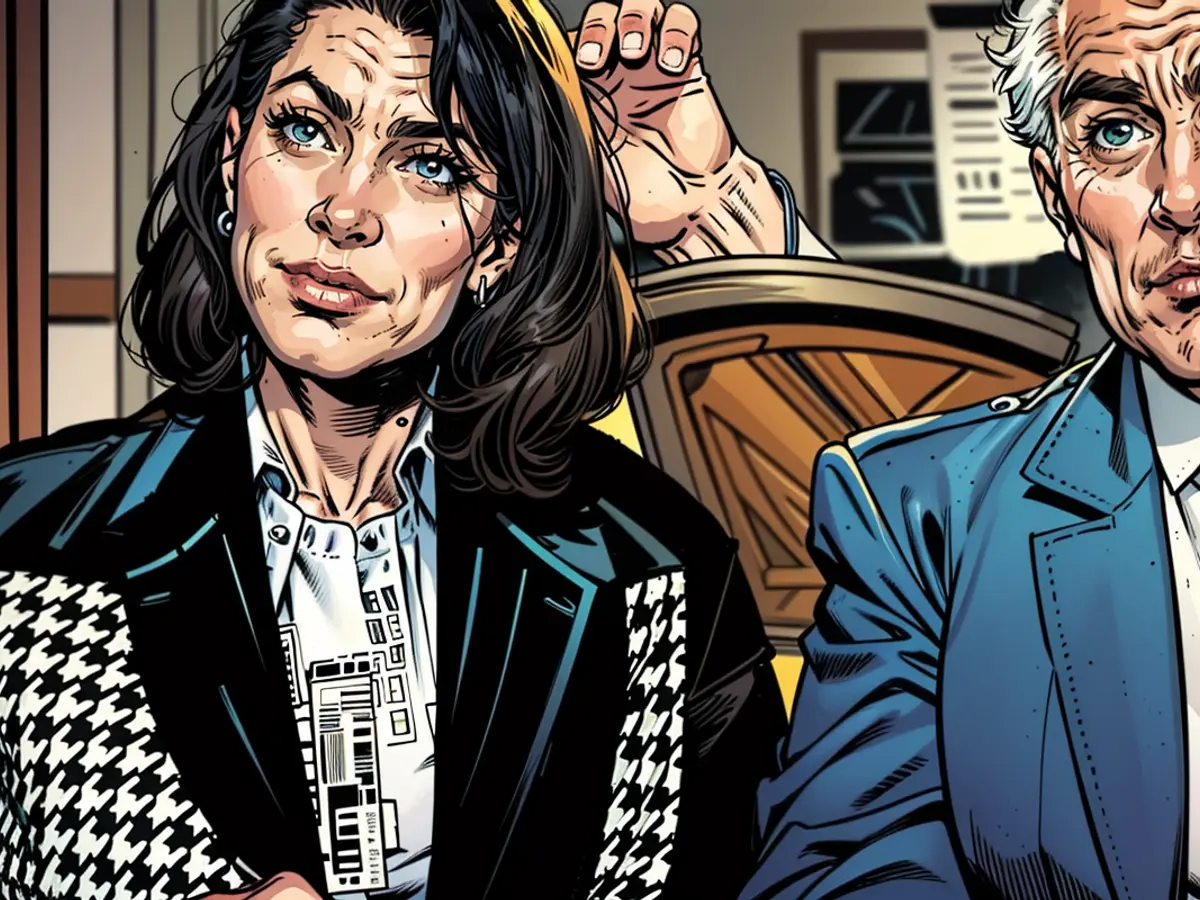Movie on TV - Monsieur Claude
David is tired of Rachid's constant nagging about his apple tree. He has a wall built between his garden and his Arabic brother-in-law's, just like there is a wall in Israel to protect against attacks from Palestine.
The third installment of Philippe de Chauveron's successful series, "Monsieur Claude and his grand feast," is coming to TV in France with French comedian Christian Clavier. The film airs on a Wednesday at 8:15 pm on Ersten.
Once again, prejudices and stereotypes clash head-on in this comedy to resolve absurdity and insight. The success formula of the series: pushing the theme of racism to the limits of acceptability or "political correctness."
Saber rattling with the sons-in-law
What's at stake? Claude and Marie have been married for nearly 40 years. They plan to celebrate this milestone with a surprise party for their daughters Isabelle, Odile, Ségòlène, and Laure. The mothers of their husbands from Algeria, China, Israel, and the Ivory Coast are invited. Since their daughters have married men of different religions and nationalities, the fathers find it difficult to accept their multicultural sons-in-law.
Claude, in particular, struggles with his multicultural sons-in-law. But Rachid, David, Chao Ling, and Charles don't miss an opportunity to hurl racist insults at each other. With their parents behaving similarly, they fear the worst at the family gathering. And so, heated saber rattling is in order.
And so, everything unfolds as it should in "Monsieur Claude and his grand feast." They insult and ridicule each other and argue about whether the best oranges come from Israel or Algeria, whether Charles, as a Black man, should play Jesus in his theater piece, and which of the guests should sleep where or even better, in the inflatable yurt that David has invented, reminiscent of the traditional tent of nomads in Central Asia.
The chaos is perfect once again
Unexpectedly, German art dealer Helmut Schäfer appears. At Ségòlène's art exhibition with her macabre paintings, he falls in love with the much older Marie. He worships her as his Valkyrie and even considers kidnapping her from her husband Claude during the surprise party.
Once again, the chaos is perfect. And so is the happy ending. But one cannot escape the feeling of déjà vu. The comedy has lost some of its charm and surprise in its third part. The unexpected freshness has become an expected impertinence, leaving one with the impression that the weapons are not as sharp as before.
However, one cannot deny the performances of the actors, especially Christian Clavier as Claude and Chantal Lauby as Marie, nor the entertainment value of the film.
- The Algerian mother-in-law, along with those from China, Israel, and the Ivory Coast, are invited to the surprise party for the seniors, Claude and Marie.
- The Cinema film "Monsieur Claude and his grand feast" features several multicultural sons-in-law, including an Algerian brother-in-law.
- The TV-View of the third installment of the series shows the French comedian Christian Clavier playing the lead role of Claude.
- Some of the arguments at the party revolve around the origins of the best oranges, with some claiming they come from Israel, while others insist on Algeria.
- The Palistine-Israel conflict is subtly brought up in the film, hinting at the political and cultural tensions between the characters.
- Despite being set in France, the series includes references to Germany (historically, France) through the character of German art dealer Helmut Schäfer.
- The Algerian-French comedy series continues its satirical approach to racism, tackling sensitive topics with humor, similar to how media in Paris often does.








